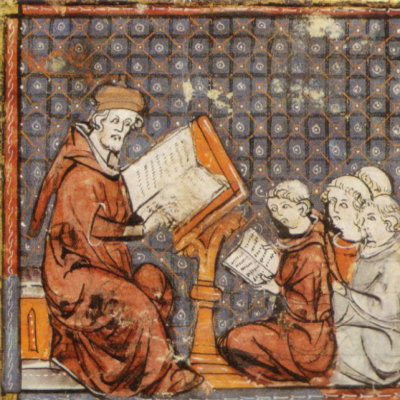
- Tutor: Headmaster †
- Tutor: Emma Jane Steuben

English Grammar Recitation Workbook One is tied specifically to the grammar taught in Latina Christiana, but it can be used successfully alongside any Latin program. Students will master (and be able to recite fluently) 31 grammar rules, 10 capitalization rules, and 15 punctuation rules. For Composition, Students look at a single story or idea and begin learning how to use words to engage the imagination of the audience. They master the structures of thought or ideas that go into a narrative and learn to create recognition by using figures of description. Students learn to restructure facts to tell the same story or idea. They also discover that words are symbols representing ideas, and as writers they can communicate the same idea using a variety of words and sentence structures.

Memoria Press’ English Grammar Recitation is a manual of about 150 grammar questions, answers, and examples designed to be studied and memorized much like a catechism. Students memorize the terminology and definitions of analytical grammar, much as they memorize forms in Latin.
In the third stage of the Classical Composition program, Chreia & Maxim, students gain the ability to create a story through the use of the narrative categories and variation through paraphrase. Students learn to demonstrate the truth of the Commonplace through what the ancient Greek writer Aphthonius calls “eight heads of development,” and students deal more explicitly and thoroughly with what in modern composition theory are referred to as “support points.” The ability to invent four specific types of narrative through these “heads of development” and to paraphrase in two specific ways are the foundational skills to be learned in this stage.

Traditional Logic is an in-depth study of the classical syllogism. Along with a basic understanding of the Christian theory of knowledge, the text presents the four kinds of logical statements, the four ways propositions can be opposed, the three ways which they can be equivalent, and the seven rules for the validity of syllogisms.

Traditional Logic II covers the figures of the traditional syllogism, forms of rhetorical arguments, kinds of hypothetical syllogisms, as well as relational arguments. The book also includes a wealth of famous arguments throughout history. Some examples include:
By the end of Traditional Logic II, the student will be able to analyze a variety of argument forms, including enthymemes, sorites, and epicheirema, as well as recognize and respond to dilemmas.
The level of understanding attained in this course would be more than that typically attained in a college course.
Advanced Concepts & Argument Forms
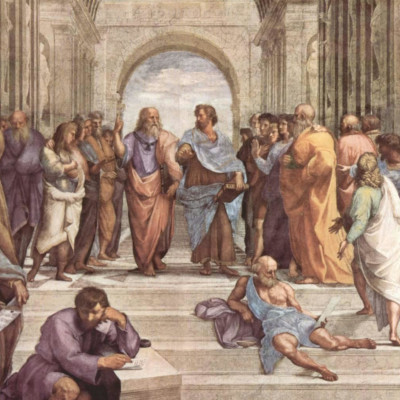
Material Logic features:
What are the ten ways in which something can be said to exist? What are the five ways in which something can be said of something else? What are the four questions you must answer in order to really know something? In ancient and medieval times, the answers to these questions were common knowledge among educated people.
When most people think of logic, they think of formal logic—the study of the structure or form of reasoning. But what most educators don’t realize is that formal logic is only one part of a complete logic program. The other branch of logic study was called “material logic,” and focused not on the form of reasoning, but on its content. In short, while formal logic studied the “how” of reasoning, material logic studied the “what.”
The principles of material logic, an important part of trivium language study, are now almost forgotten—a casualty of the almost exclusive modern secular emphasis on math and sciences. Formal logic was once termed minor (or lesser) logic, while material logic usually went by the name of major (or greater) logic—a measure of how important classical thinkers considered them.
There is a huge gap between formal logic courses and so-called “thinking skills” courses. Formal logic focuses exclusively on the systematic study of the structure of reasoning. That is important, but it hardly covers all you need to know to reason effectively. “Thinking skills” courses, on the other hand, tend to suffer from a highly nonsystematic topic-hopping approach, where the student is unable to see how one principle connects with another.
With the publication of Material Logic: A Course in How to Think, these ancient techniques are a lost art no more. Whether you want a follow-on course to Memoria Press’ popular Traditional Logic program, or simply an introductory thinking skills course for high school grades, this new addition to Memoria Press’ widely acclaimed Classical Trivium Core Series is a valuable tool in teaching your student to think.
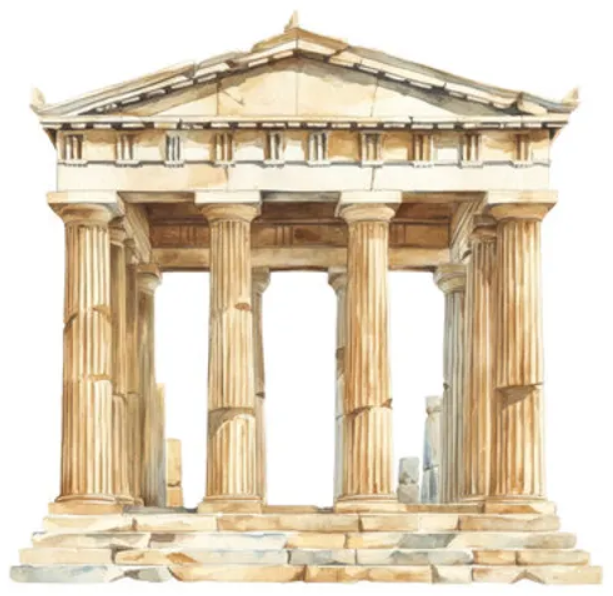
The Greek Alphabet Book Set is an 80-page book suitable for any age from third grade to adult. It can be covered in a week or a year depending on the age of your student and how much time you want to invest each week. At Highlands Latin School, we use The Greek Alphabet Book in the 5th or 6th grades over the course of a whole year, covering about two letters per week, and devoting about 30 minutes each week to Greek.

Elementary Greek I: Introduces the Greek alphabet, basic vocabulary, grammar, and translation.
Finally, a Koine Greek text that’s both simple and substantial! Designed to be used as a full course for teaching children as young as 4th grade, Elementary Greek may also serve as a self-teaching program for teens and adults. No previous knowledge is necessary, and each concept is covered thoroughly and reviewed regularly throughout the course.

Year Two: Continues the student’s study of vocabulary, grammar, and translation.
Finally, a Koine Greek text that’s both simple and substantial! Designed to be used as a full course for teaching children as young as 4th grade, Elementary Greek may also serve as a self-teaching program for teens and adults. No previous knowledge is necessary, and each concept is covered thoroughly and reviewed regularly throughout the course.

Prima Latina uses a clear and systematic format to introduce Latin to young students. It teaches important English and Latin grammar concepts, as well as vocabulary, sayings, prayers, hymns, and constellations.

Latina Christiana was designed as a beginning course for students interested in learning Latin and was specifically written for the teacher with no background in Latin. This set includes everything you need to start your Latin journey! Latina Christiana is, quite simply, the best Latin grammar course available for younger beginning students.

First Form Latin provides everything you need to build a strong foundation in Latin. Step-by-step lessons and teaching guidelines—plus a wealth of helpful resources—ensure mastery of Latin grammar for any student, even without any Latin background! It’s a great place to start for anyone grades 5 and up.

Second Form Latin continues the journey of Latin grammar. Building on what the student learned the previous year, Second Form reviews all material in First Form, completes the verb paradigms for all four conjugations in the indicative active and passive, and much more! Once they have finished Second Form, students will have crossed the halfway mark on their Latin journey! Second Form employs the identical format of First Form—an attractive, concise Student Text, systematic presentation in five units, extensive Workbook exercises, and a Teacher Manual with everything you need to successfully teach this course.

Third Form Latin continues the journey of Latin grammar by reviewing all material in First and Second Form, completing the verb paradigms for all four conjugations in the indicative active and passive, and much more. Third Form employs the identical format of First and Second Form—an attractive, concise Student Text, systematic presentation in five units, extensive Workbook exercises, and a Teacher Manual with everything you need to successfully teach this course.
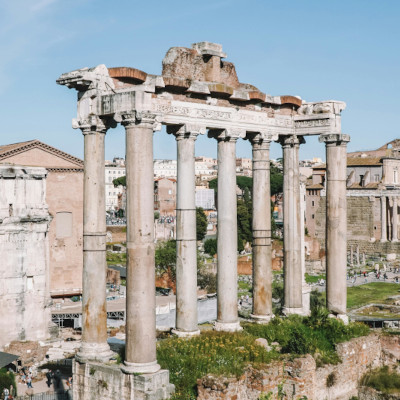
Fourth Form Latin completes the journey of Latin grammar by reviewing all material in First, Second, and Third Form, completing all verb forms for all four conjugations by studying participles, infinitives, gerunds, and much more. Fourth Form continues to employ the identical format of First Form—an attractive, concise Student Text, systematic presentation in five units, extensive Workbook exercises, and a Teacher Manual with everything you need to successfully teach this course.

Hans Ørberg's Lingua Latina per se Illustrata is the world's premiere series for learning Latin via the Natural Method. The Natural Method encourages students to learn Latin without resorting to translation, but instead by teaching them to think in the language: students first learn grammar and vocabulary inductively through extended contextual reading and an ingenious system of marginal notes. Lingua Latina per se Illustrata is also the most popular series for those teachers at both the secondary and collegiate levels who wish to develop Latin conversational skills in the classroom.


This refreshingly Catholic biology book begins with a short and easy application of the wisdom of St. Thomas Aquinas (the Catholic Church’s greatest theologian) to the science of biology. In contrast to most modern biology texts, which are designed around evolutionary principles and assumptions, this Catholic textbook explains life from the perspective of the observable activities of living things. It takes into account all the causes of life, including God, the soul, and the purpose behind the design of living things. Guided by this sound framework, the reader is given an up-to-date presentation of human biology, animal physiology, a detailed treatment of the various animal and plant kinds, ecosystems, cellular and molecular biology, genetics and heredity, biotechnology and ethics, and a refutation of evolution as a plausible explanation of the origin and diversity of life. Sold separately are a laboratory/experiment manual, student exercises, and answer key.






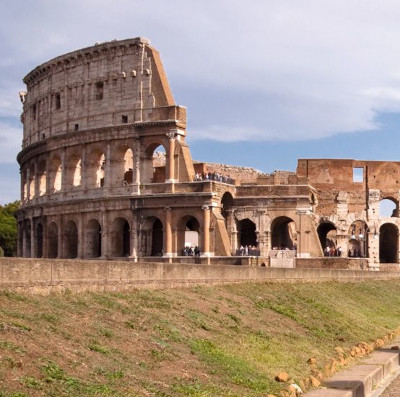
World Chronology is a timeline based course covering the four major periods of History: Ancient World (4000 BC – 750 BC), Classical World (750 BC – 500 AD), Medieval World (500 AD – 1500 AD), Modern World (1500 AD – present).

Volume III: The Making of the Modern World continues the journey, picking up where Volume II left off amidst the Renaissance and quickly diving in to the history-altering events of the Reformation. This fracturing of the Church dramatically altered the course of modern Europe and the world at large.
But during the most tumultuous times, God gives us the greatest saints. Children will meet great figures like Sts. Pius V, Thomas More, John Vianney, and Margaret Mary Alacoque, as well as powerful leaders like Napoleon and Kings Henry VIII of England and Louis XIV of France. This volume brings us through present-day Europe, showing us the effects of two world wars and how the Church responded to these changing times.
The strength of the content lies not only in the storybook delivery, but also in the way it presents history through the faithful prism of the Church. Have you always wanted your children to learn about world history from a Catholic perspective? Here, you’ll have the trusted resource you’ve always wanted.
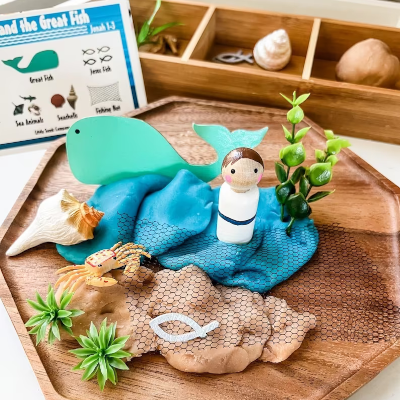
Theology in the Petty School will utilize the montessori method in Bible imaginative play to cultivate the theological imagination. Students will construct scenes and figures to act out stories from Holy Scripture.
We recommend that parents begin studying The New Saint Joseph First Communion Catechism with their children at home: https://books.modg.org/the-new-saint-joseph-first-communion-catechism
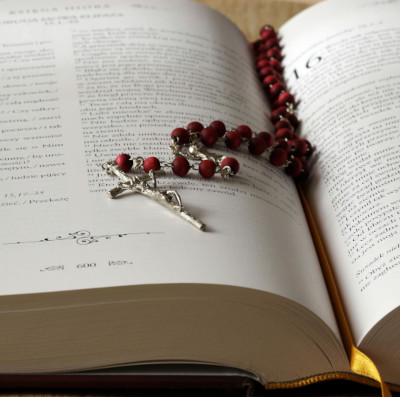
Theology at the Primary level will focus on Bible & Catechism.
Philosophy at the Junior level with begin introducing our Education in Virtue curriculum, which is woven throughout the academy. This masterful curriculum developed by the Dominican Sisters of Mary Mother of the Eucharist creates a foundation for virtue. Parents are encouraged to purchase the virtue chart packs for home study: https://openlightmedia.com/product-category/product-lines/education-in-virtue/
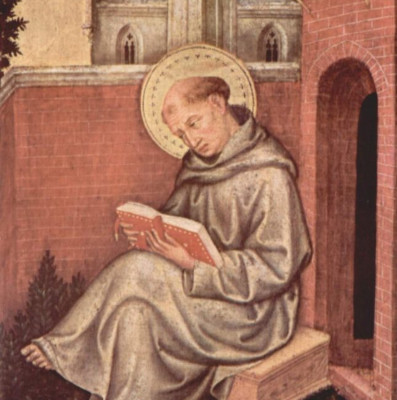
Theology at the Primary level will focus on Bible & Catechism.
Text: The New Saint Joseph Baltimore Catechism No. 1 and review at home: https://books.modg.org/the-newsaint-joseph-baltimore-catechism-no-1
Text: Gilmore’s Bible History: St. Alcuin will provide this text.
Philosophy at the Junior level with begin introducing our Education in Virtue curriculum, which is woven throughout the academy. This masterful curriculum developed by the Dominican Sisters of Mary Mother of the Eucharist creates a foundation for virtue. Parents are encouraged to purchase the virtue chart packs for home study: https://openlightmedia.com/product-category/product-lines/education-in-virtue/

Theology at the Primary level will focus on Catechism and Saint Stories. Parents should get The New Saint Joseph Baltimore Catechism No. 1 and review at home: https://books.modg.org/the-new-saint-joseph-baltimore-catechism-no-1
Philosophy at the Primary level with begin introducing our Education in Virtue curriculum, which is woven throughout the academy. This masterful curriculum developed by the Dominican Sisters of Mary Mother of the Eucharist creates a foundation for virtue. Parents are encouraged to purchase the virtue chart packs for home study: https://openlightmedia.com/product-category/product-lines/education-in-virtue/